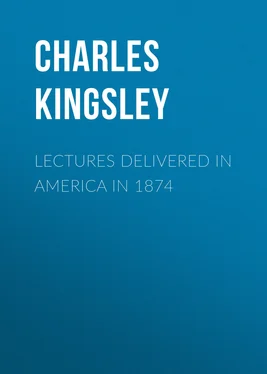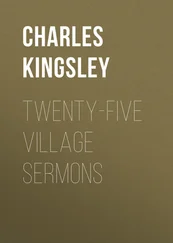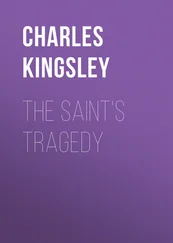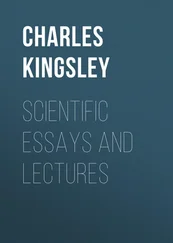Charles Kingsley - Lectures Delivered in America in 1874
Здесь есть возможность читать онлайн «Charles Kingsley - Lectures Delivered in America in 1874» — ознакомительный отрывок электронной книги совершенно бесплатно, а после прочтения отрывка купить полную версию. В некоторых случаях можно слушать аудио, скачать через торрент в формате fb2 и присутствует краткое содержание. Жанр: foreign_prose, foreign_antique, на английском языке. Описание произведения, (предисловие) а так же отзывы посетителей доступны на портале библиотеки ЛибКат.
- Название:Lectures Delivered in America in 1874
- Автор:
- Жанр:
- Год:неизвестен
- ISBN:нет данных
- Рейтинг книги:3 / 5. Голосов: 1
-
Избранное:Добавить в избранное
- Отзывы:
-
Ваша оценка:
- 60
- 1
- 2
- 3
- 4
- 5
Lectures Delivered in America in 1874: краткое содержание, описание и аннотация
Предлагаем к чтению аннотацию, описание, краткое содержание или предисловие (зависит от того, что написал сам автор книги «Lectures Delivered in America in 1874»). Если вы не нашли необходимую информацию о книге — напишите в комментариях, мы постараемся отыскать её.
Lectures Delivered in America in 1874 — читать онлайн ознакомительный отрывок
Ниже представлен текст книги, разбитый по страницам. Система сохранения места последней прочитанной страницы, позволяет с удобством читать онлайн бесплатно книгу «Lectures Delivered in America in 1874», без необходимости каждый раз заново искать на чём Вы остановились. Поставьте закладку, и сможете в любой момент перейти на страницу, на которой закончили чтение.
Интервал:
Закладка:
Charles Kingsley
Lectures Delivered in America in 1874
Byfleet: August 1875.
LECTURE I
WESTMINSTER ABBEY
Reverence for age, at least so it has long seemed to me, reverence for age, I say, is a fair test of the vigour of youth; and, conversely, insolence toward the old and the past, whether in individuals or in nations, is a sign rather of weakness than of strength. And the cause, I think, is this. The rich and strong young natures, which feel themselves capable of original thought and work, have a corresponding respect for those who, in the generations gone by, have thought and worked as they hope to do hereafter. And this temper, understand me, so far from being servile, or even merely conservative, usually accompanies true independence of spirit. The young athlete, like the young race-horse, does not despise, but emulate, his sire; even though the old victor be long past his prime. The young soldier admires the old general; the young midshipman the old admiral, just in proportion as he himself is likely to be a daring and able officer hereafter. The son, when grown to man’s estate, may say to his father, I look on you still with all respect and admiration. I have learnt, and desire always, to learn from you. But you must be to me now, not a dictator, but an example. You became what you are by following your own line; and you must let me rival you, and do you honour, by following mine.
This, I believe, is true of nations as well as of individuals. I do not hesitate to say that, paradoxical as it may seem, the most original races—those who have succeeded best and left their stamp most broadly and permanently on the human race—have also been the most teachable, provided they were allowed to learn in their own way and to adapt to their own purposes any higher ancient civilisation with which they came in contact. What more striking instances of this truth—for truth it is—than the reverence of the free Republican Greek for the old despotic civilisation of Egypt? and of the free Norseman, our own ancestor, for the old and equally despotic civilisation of Rome?
These—the two most originative and most progressive races of Europe—had a faith in, an awe of, the supposed or real wisdom of the men of old time, which was often exaggerated into a superstition; but never—thanks to their own innate force—degenerated into a bondage.
Pardon me this somewhat dry proœmium; and pardon me, too, if it leads me on to a compliment to the American people, which I trust you will not think impertinent.
For I have seen, and seen with joy, a like spirit in those Americans whom it has been my good fortune to meet in my own land. I mean this:—That I found in them, however self-teaching and self-determining they might be, that genial reverence for antiquity which I hold to be the sign of a truly generous—that is in the right sense of the grand old word—a truly high-bred, nature. I have been touched, and deeply touched, at finding so many of them, on landing for the first time at Liverpool, hurrying off to our quaint old city of Chester to gaze on its old girdle of walls and towers; Roman, Mediæval, Caroline; its curious ‘Rows’ of overhanging houses; its fragments of Roman baths and inscriptions; its modest little Cathedral; and the—really very few—relics of English history which it contains. Even two banners of an old Cheshire regiment which had been in the Peninsular war were almost as interesting, to some, as an illuminated Bible of the early Middle Age. More than once have I had to repress the enthusiasm of some charming lady and say, ‘But this is nothing. Do not waste your admiration here. Go on. See the British Museum, its marbles and its manuscripts—See the French Cathedrals; the ruins of Provence and Italy; the galleries of Florence, Naples, Rome.’
‘Ah, but you must remember,’ was the answer, ‘these are the first old things I ever saw.’
A mere sentiment? Yes: but as poets know, and statesmen ought to know, it is by sentiment, when well directed—as by sorrow, when well used—by sentiment, I say, great nations live. When sentiment dies out, and mere prosaic calculation of loss and profit takes its place, then comes a Byzantine epoch, a Chinese epoch, decrepitude, and slow decay.
And so the eagerness of those generous young souls was to me a good augury for the future, of them, and of their native land. They seemed to me—and I say again it touched me, often deeply—to be realising to themselves their rightful place in the community of the civilised nations of all lands, and of all times—realising to themselves that they were indeed
Heirs of all the ages, foremost in the ranks of time;
and minded, therefore, like wise and noble heirs, not to despise and squander, but to treasure and to use that inheritance, and the accumulated labours of the mighty dead.
I saw this, I say, at Chester. And therefore I was not surprised to find the pleasant experience repeated, and to even a higher degree, at Westminster. A pleasant experience, I say. I know few more agreeable occupations than showing a party of Americans round our own great Abbey; and sentimentalising, if you will, in sympathy with them, over England’s Pantheon.
I pause to confess once more that it is almost an impertinence in me to pay you such a compliment. You have a right to answer me—How could it be otherwise?—Are we not educated people? Has not our taste been trained by native authors, who were at least civilised enough to value the great past, without the need of any European crossing the seas to tell us of its wealth?
If you reprove me thus, I can but say that the reproof is just, and will remain just, as long as your poets are what they are; and as long, above all, as you reverence as much in America as we do in England, the poetry of Mr. Longfellow. He has not, if I recollect aright, ever employed his muse in commemorating our great Abbey; but that muse is instinct with all those lofty and yet tender emotions which the sight of that great Abbey should call out. He knows, as few know on our side of the wide water, the effect, chastening and yet ennobling, of such architecture, consecrated by such associations. He has not only perceived and drank in all that is purest and noblest in the now sleeping last ten centuries: but he has combined it, again and again, with that which is purest and noblest in the waking and yearning present; and combined it organically and livingly, as leaf and stem combines with flower and fruit. Yes; as long as the poet who could write both the Belfry of Bruges and The Village Blacksmith is read among you, there is no need for me to bid you reverence the past; and little need, I trust, for me to tell those whom I leave at home to reverence the present. For it is a fact—of which some Americans may not be as well aware as they should be—that your exquisite poet has exercised an influence in Britain it may be as great as, and certainly more varied than, that which he has exercised in his native land.
Читать дальшеИнтервал:
Закладка:
Похожие книги на «Lectures Delivered in America in 1874»
Представляем Вашему вниманию похожие книги на «Lectures Delivered in America in 1874» списком для выбора. Мы отобрали схожую по названию и смыслу литературу в надежде предоставить читателям больше вариантов отыскать новые, интересные, ещё непрочитанные произведения.
Обсуждение, отзывы о книге «Lectures Delivered in America in 1874» и просто собственные мнения читателей. Оставьте ваши комментарии, напишите, что Вы думаете о произведении, его смысле или главных героях. Укажите что конкретно понравилось, а что нет, и почему Вы так считаете.












